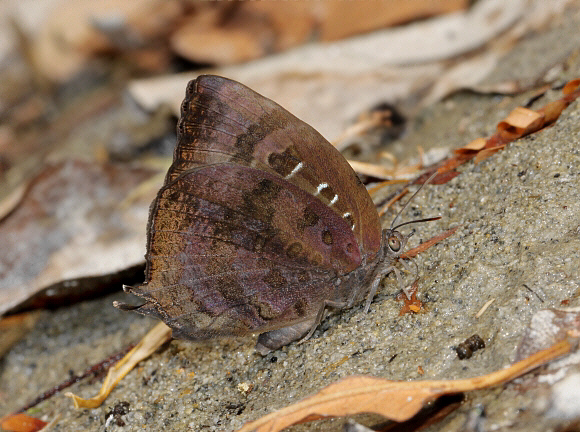
Introduction
It is unclear how many species should be classified within the genus Arhopala. Some consider that the genus should only include a few Papuan species and place all other related species in Panchala, Narathura, or Aurea. Here I follow the classification adopted by Corbet & Pendlebury, who include all these genera within Arhopala. Thus defined, the genus is widespread, with the species distributed variously from Afghanistan to Japan, and south across the Pacific to Australia. In total, there are about 220 species, collectively known as Oakblues.
Most species have metallic blue or purplish uppersides. A few species, however, such as eumolphus, aurea, and trogon have metallic green wings. The undersides of all species are cryptically patterned with dark spots and blotches on a greyish or brown ground color. All species have short tails on the hindwings, and in many, there is a patch of metallic green or blue scales adjacent to the tail.
Arhopala centaurus is found in India, Sri Lanka, Bhutan, Myanmar, Laos, Cambodia, China, Taiwan, Vietnam, Thailand, West Malaysia, Sumatra, Borneo, the Philippines, Sulawesi, Java, and Bali.
Habitats
This is a common species found in rainforest and humid deciduous forest at elevations between sea level and about 800m.
Lifecycle
The caterpillars are known to feed on Terminalia (Combretaceae), Lagerstroemia (Lythraceae), and Xylia (Mimosaceae). They have also been recorded on Quercus (Fagaceae) but records on this plant may erroneously refer to another Arhopala species – pseudocentaurus.
Adult behaviour
The butterflies are usually seen singly. They spend long periods perching on leaves, periodically taking short, very rapid and acrobatic flights before settling again nearby. They also sometimes settle on leaf litter on the forest floor.
